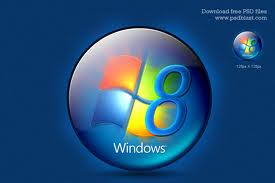Intel has been talking since at least CES at the beginning of this year about the huge number of tablets that its OEMs are preparing for later this year and now we have gotten a sneak peak at what they are planning at an event the company held in San
Francisco this week.
The hardware products which included both tablets and hybrid/convertible systems were powered by an Intel processor called the Atom Z2760, formerly codenamed Clover Trail, a processor that the company is positioning against ARM-based processors from rivals such as Broadcom and Texas Instruments.
There are a number of Windows 8 products based on the Atom Z2760 processor that were unveiled and we will just give the names of the announced systems, for full details head over to Intel. Acer’s Iconia W510, Asus VivoTab, Dell Latitude 10, Fujitsu Stylistic Q702, HP Envy x2, Lenovo ThinkPad 2, Samsung Smart PC, and the ZTE V98.
Some, such as the Lenovo ThinkPad 2 have been talked about a good deal already while this marks the return of Hewlett-Packard and Dell to the tablet space. Since Intel has said that there are 20 tablet designs in the works expect more at the Windows 8 official announcement.
Intel also brings a huge software development effort to the mobile app space, something that is often overlooked by outsiders. It also has a Software Partners program with 7,000 members and along with its Software Network helps developers optimize for Intel platforms.
In addition Intel will be delivering a range of technologies in the chips that are seen in its much higher end offerings including technology designed for servers where security is a major issue. The company sees this as helping provide assurances to corporations looking to purchase tablets but concerned about their ability to provide a robust, secure computing environment.
Included is technology from its Core vPro processors that offers hardware-assisted security, manageability and virtualization capabilities for business computing. Among the features are Enhanced Intel Anti-Theft Technology, Intel Secure Key, Intel OS Guard, Enhanced Intel Identity Protection Technology, and Intel Trusted Execution Technology.
While in the past consumers have been the primary target for tablets the inclusion of the Intel security and other technology coupled with Microsoft’s similar offerings from its end could make the tablets much more appealing to the business space as well. While the BYOD (bring your own device) crowd has had success in allowing users to bring their own devices into work, IT departments dislike this and when the system refresh comes in many offices these technologies should make tablets a much more acceptable alternative to notebooks to the IT department.








